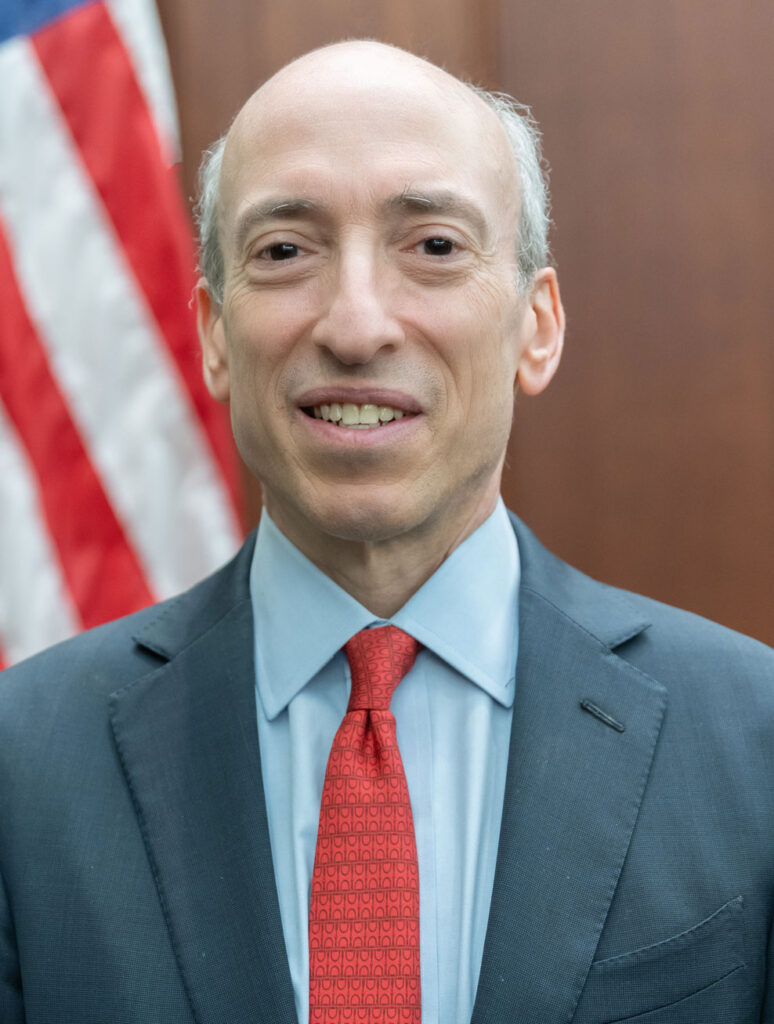FLASH FRIDAY is a weekly content series looking at the past, present and future of capital markets trading and technology. FLASH FRIDAY is sponsored by Instinet, a Nomura company.
On 6 June this year Gary Gensler, chair of the Securities and Exchange Commission, tweeted that the US regulator was officially 89 years old thanks to the Securities Exchange Act of 1934.
The 32nd U.S. President, Franklin D. Roosevelt, signed the first of the federal securities laws, the Securities Act of 1933, which required issuers raising money from the public to make full, fair, and truthful disclosure. One year later the Exchange Act was passed which covered intermediaries such as exchanges and broker-dealers, and established the SEC to oversee securities markets.
Most people celebrate their birthdays with a party, or a dinner with friends or maybe champagne. However the SEC celebrated by charging Coinbase, the listed US crypto exchange, with operating its trading platform as an unregistered national securities exchange, broker, and clearing agency. The regulator also charged Coinbase for failing to register the offer and sale of its crypto asset staking-as-a-service program.

Gensler said in a statement: “We allege that Coinbase, despite being subject to the securities laws, commingled and unlawfully offered exchange, broker-dealer, and clearinghouse functions. In other parts of our securities markets, these functions are separate. Coinbase’s alleged failures deprive investors of critical protections, including rulebooks that prevent fraud and manipulation, proper disclosure, safeguards against conflicts of interest, and routine inspection by the SEC. Further, as we allege, Coinbase never registered its staking-as-a-service program as required by the securities laws, again depriving investors of critical disclosure and other protections.”
Brian Armstrong, co-founder and chief executive of Coinbase said:
On the previous day the SEC had charged Binance, which operates the largest crypto asset trading platform in the world, and founder, Changpeng Zhao, with a variety of securities law violations.
The SEC alleges that, while Zhao and Binance publicly claimed that U.S. customers were restricted from transacting on Binance.com, Zhao and Binance in reality subverted their own controls to secretly allow high-value U.S. customers to continue trading on the Binance.com platform. Further, the SEC alleges that, while Zhao and Binance publicly claimed that Binance.US was created as a separate, independent trading platform for U.S. investors, Zhao and Binance secretly controlled the Binance.US platform’s operations behind the scenes.
The SEC also alleges that Zhao and Binance exercise control of the platforms’ customers’ assets, permitting them to commingle customer assets or divert customer assets as they please, including to an entity Zhao owned and controlled called Sigma Chain. The SEC’s complaint further alleges that BAM Trading and BAM Management US Holdings, Inc. (“BAM Management”) misled investors about non-existent trading controls over the Binance.US platform, while Sigma Chain engaged in manipulative trading that artificially inflated the platform’s trading volume. Further, the Complaint alleges that the defendants concealed the fact that it was commingling billions of dollars of investor assets and sending them to a third party, Merit Peak Limited, that is also owned by Zhao.
Gurbir S. Grewal, Director of the SEC’s Division of Enforcement, said in a statement: “We allege that Zhao and the Binance entities not only knew the rules of the road, but they also consciously chose to evade them and put their customers and investors at risk – all in an effort to maximize their own profits.”
Binance responded in a statement that it was disappointed that the SEC chose to file a complaint as it had actively cooperated with the regulator’s investigations and worked hard to answer their questions and address their concerns.
“Any allegations that user assets on the Binance.US platform have ever been at risk are simply wrong, and there is zero justification for the Staff’s action in light of the ample time the Staff has had to conduct their investigation,” added Binance. ”All user assets on Binance and Binance affiliate platforms, including Binance.US, are safe and secure, and we will vigorously defend against any allegations to the contrary.”
Binance continued that it is not a U.S. exchange so the SEC’s actions are limited in reach and it is prepared to fight the charges to the full extent of the law.
Senator Cynthia Lummis, who with Senator Kirsten Gillibrand, proposed the Responsible Financial Innovation Act to create a complete regulatory framework for digital assets, said:
Kristin Smith, CEO of the Blockchain Association, said in a statement: “The SEC doesn’t make the law – it only makes accusations – and we’re confident the courts will prove Chair Gensler wrong in due time. Contrary to what Chair Gensler says, there is no regulatory clarity for digital assets as evidenced by two House committee chairs circulating a comprehensive regulatory proposal just last week. The Digital Asset Market Structure discussion draft is a step forward to not only craft effective regulation for digital assets, but also rein in Chair Gensler’s relentless crusade against American innovation.”
It seems unlikely that any of them will be sending birthday wishes to the SEC.








